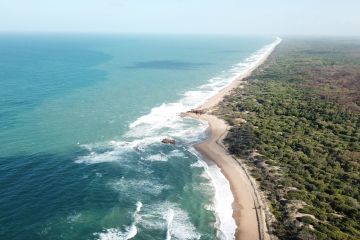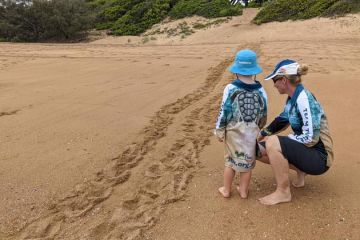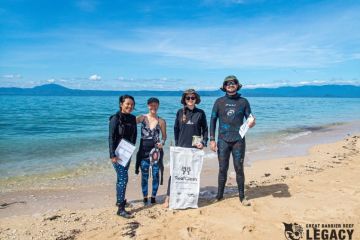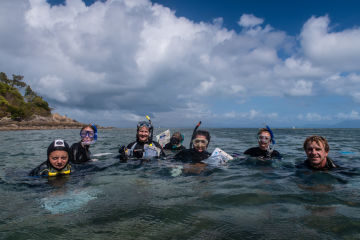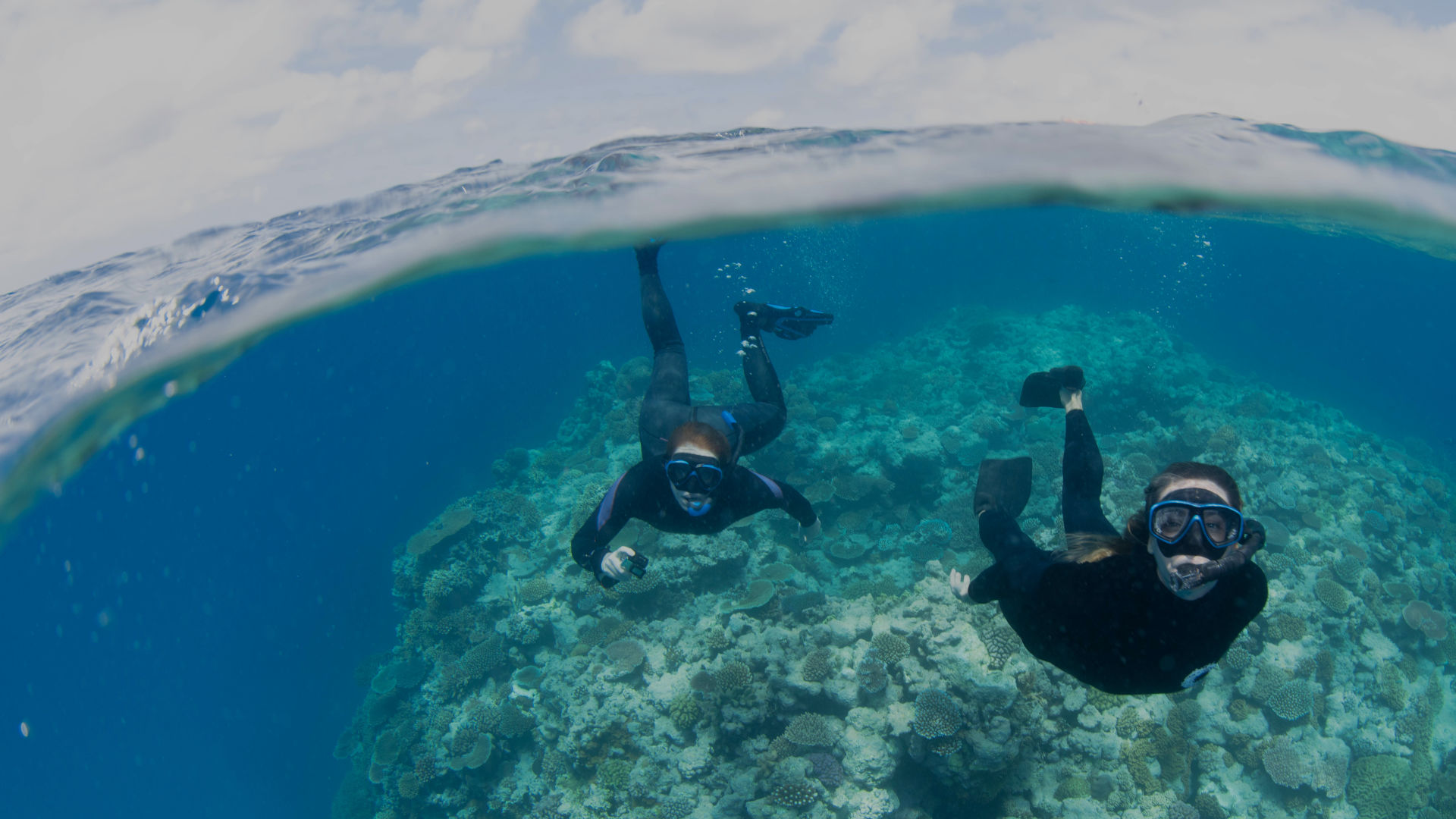
Citizen Science for Change
Citizen science offers ways for communities to complement science and management efforts by actively engaging in activities to help monitor, understand, and protect the Reef. Projects are bringing local communities together with a range of partners to understand Reef health and catalyse local Reef protection actions.
#Citizen science connects and empowers
Citizen science engages community members in collecting valuable information to help understand and care for the Reef.
We partner with citizen science organisations across Queensland to maintain and innovate the role that citizen science has to play in empowering communities to find solutions for building Reef and community resilience in the face of climate change.
Projects focus on pathways for delivering positive change in this critical window of time we have to shape a better future for the Reef - helping to translate information into knowledge that informs action and strengthening community leadership as local champions to deliver outcomes for the Reef and their communities.
#At a glance
Projects have been engaging communities in citizen science across the Reef and catchments since 2019.
25
Completed citizen science projects providing a platform for communities to contribute to understanding and protecting the Reef
637,000
Data points collected about the health of corals, mangroves, seagrass, catchments and wildlife
533
Information exchange initiatives – uniting key groups to plan
145
Instances of citizen science data being used to inform Reef planning, reporting and management actions
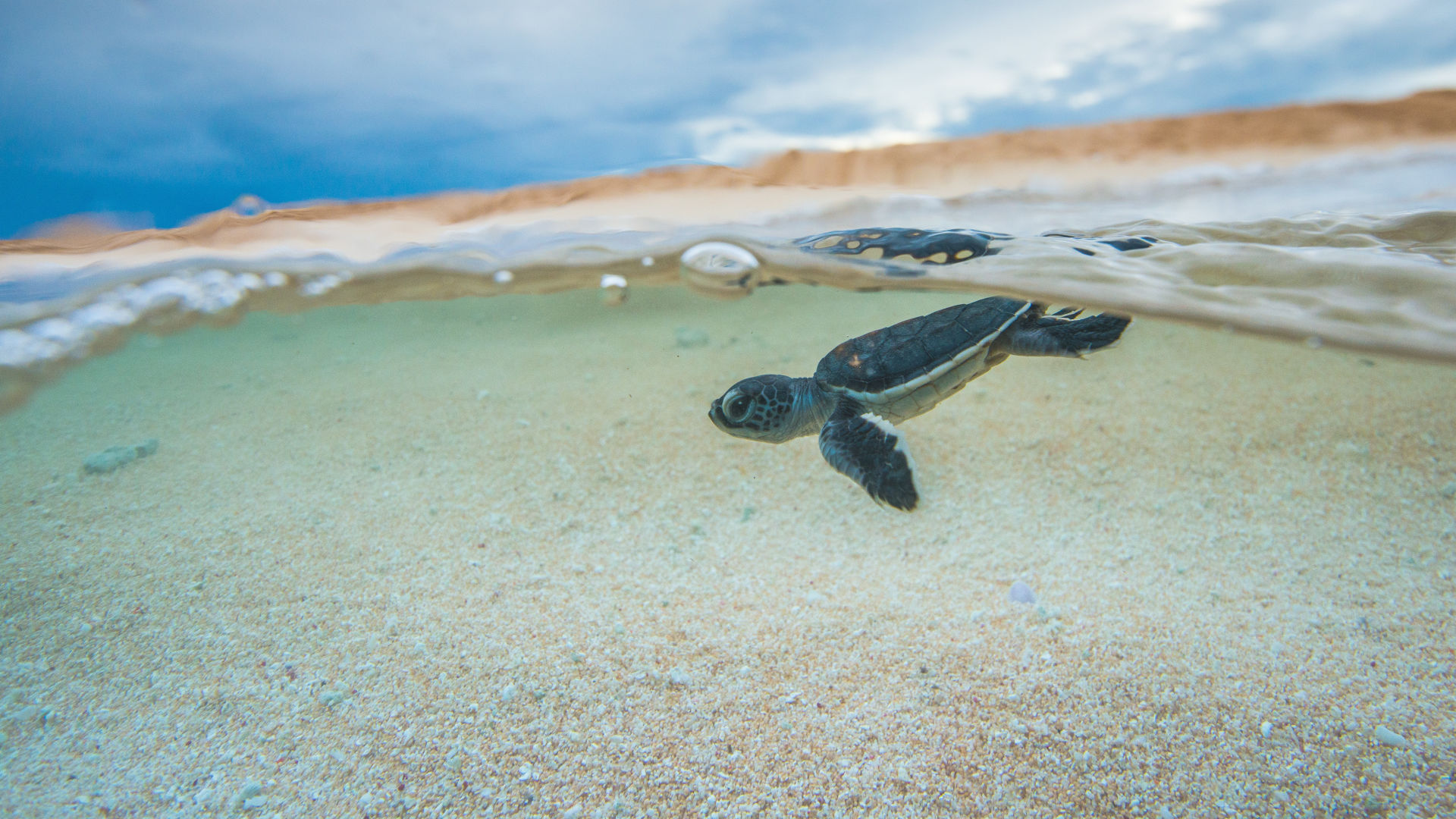
#Why citizen science?
The Great Barrier Reef is enormous. A complex and highly diverse ecosystem made up of coral, mangroves, seagrass and more. To care for a place of this scale and complexity requires bringing together a range of data to help inform actions.
Citizen science offers pathways for communities to complement science and management efforts by actively engaging in activities to help monitor, understand, and protect the Reef.
Citizen science is a connector - bringing together diverse partners in new ways to identify what information is needed, how community can collect and help share that information, and how to use information to inform our collective actions.
#Community data use
Connecting community data with channels to inform, educate and drive action to protect the Reef is key focus of the program.
Contributing to wildlife management
Community data has been used to help inform and trial turtle management actions and activate Crown-of-Thorns Starfish management responses
Enabling policy & management actions
Community data has contributed to lines of evidence and community voices for changes in beach management to improve turtle nest protection, protecting community boardwalks and contributing to the Australian Government's Blue Carbon Emissions Reduction Fund method
Contributing to Reef and waterway reporting
Community data has been used in regional waterway report cards, addressing gaps in water quality data, bolstering local coral data and providing the first mangrove condition assessment for the Wet Tropics report card
#Project highlights
Check out some exciting achievements from citizen science projects 2019-2022.
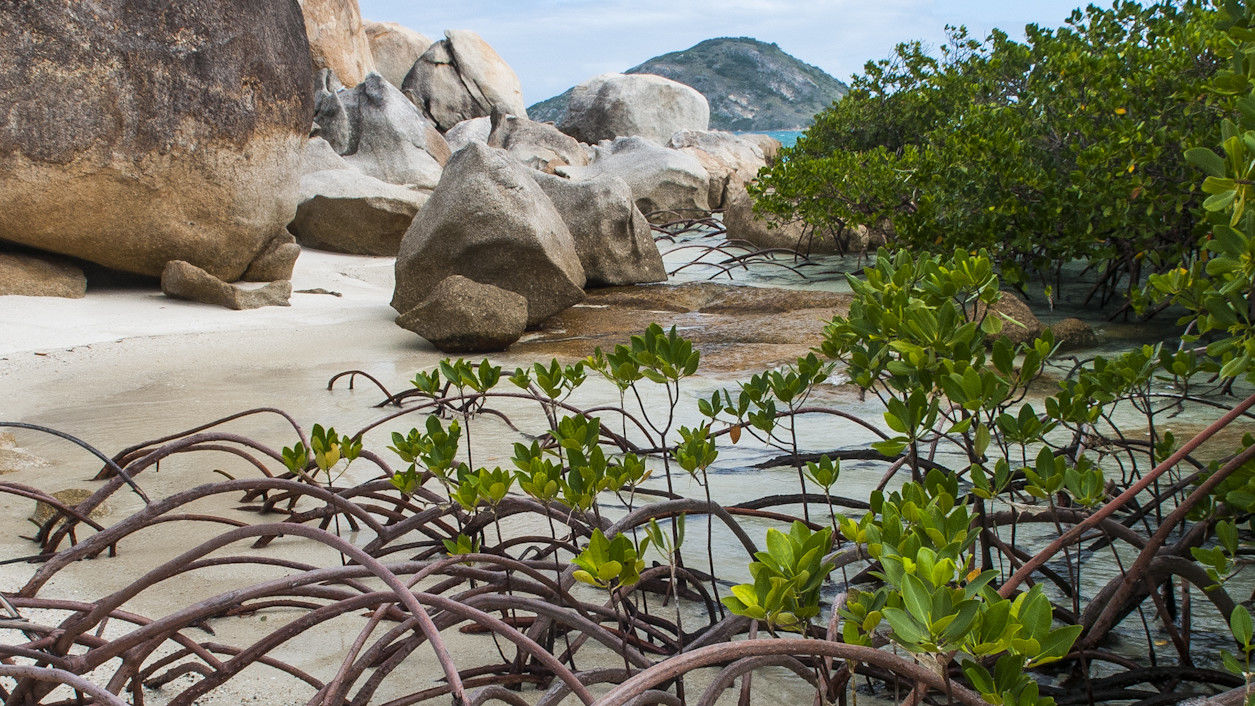
First citizen science mangrove report for the Wet Tropics
Cairns and Far North Environment Centre and Eathwatch led the first citizen science MangroveWatch assessment for mangrove and tidal wetland health key Wet Tropics estuaries. Project leads worked with the Wet Tropics Report Card to design a set of indicators to use this citizen science data set to report on mangrove health in 2022 report card. This model is being replicated in Townsville and Mackay.
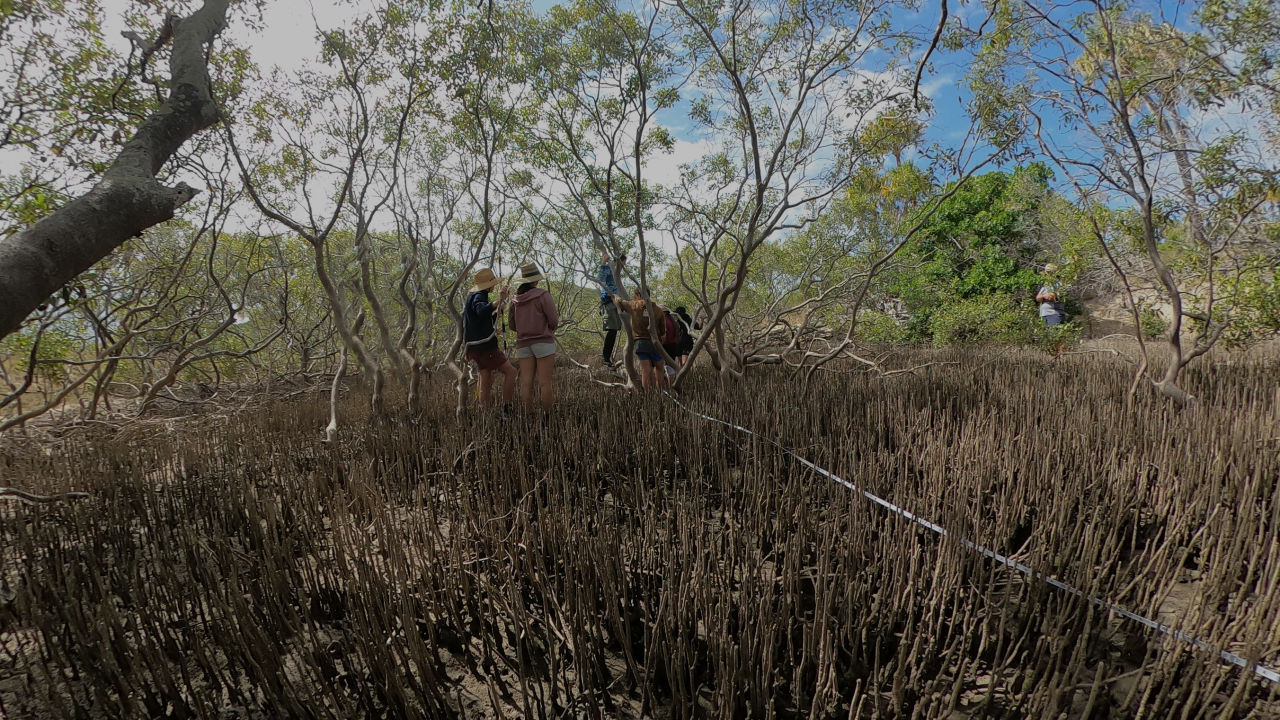
Students contribute to mangrove blue carbon modelling
The EarthWatch Protecting Wetlands for the Future project enabled Queensland students and teachers to inform modelling for national climate change policy as well as supporting tidal wetland protection through citizen science.
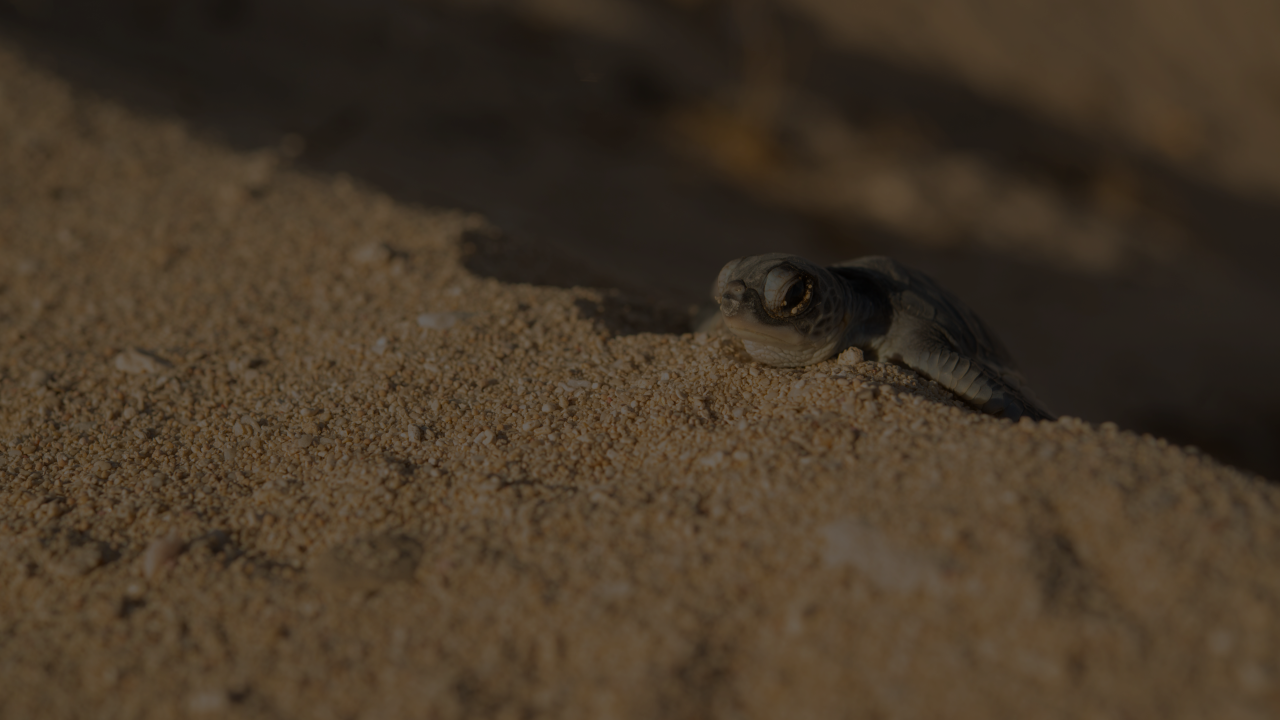
Community protecting key turtle nesting areas
Turtle Care community monitoring teams at Wreck Rock covered more than 30,000 kilometres over the two nesting seasons, patrolling the beach at night to monitor and record turtle nesting and hatching activity, and protecting more than 400 egg clutches. They are now working on supporting opportunities to foster learning and connections across volunteer turtle monitoring programs.
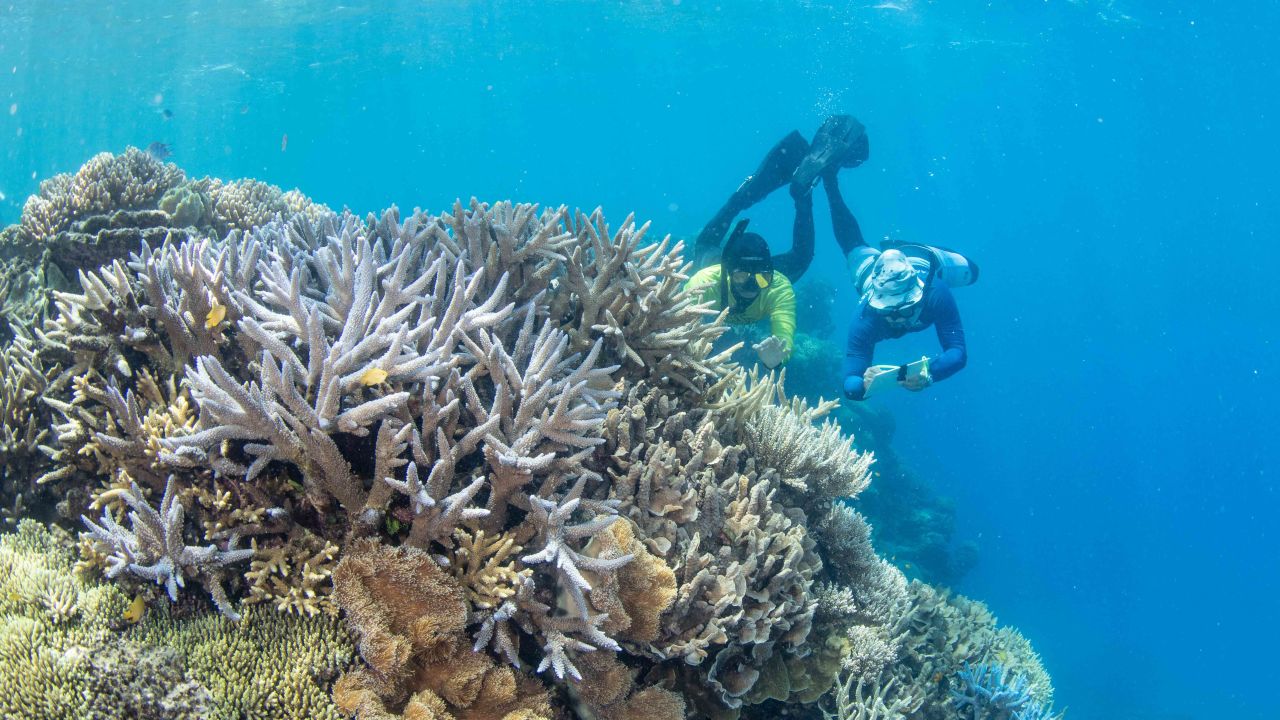
Successful pilot for new Eye on the Reef module
The Reef Teach photo transect pilot project has demonstrated that the method can assess changes in the condition of coral reef habitats over time, support the tourism industry to incorporate the activities into their ongoing operations and will result in integration of the method into the Great Barrier Reef Marine Park Authority's Eye on the Reef Tourism Weekly monitoring approach.
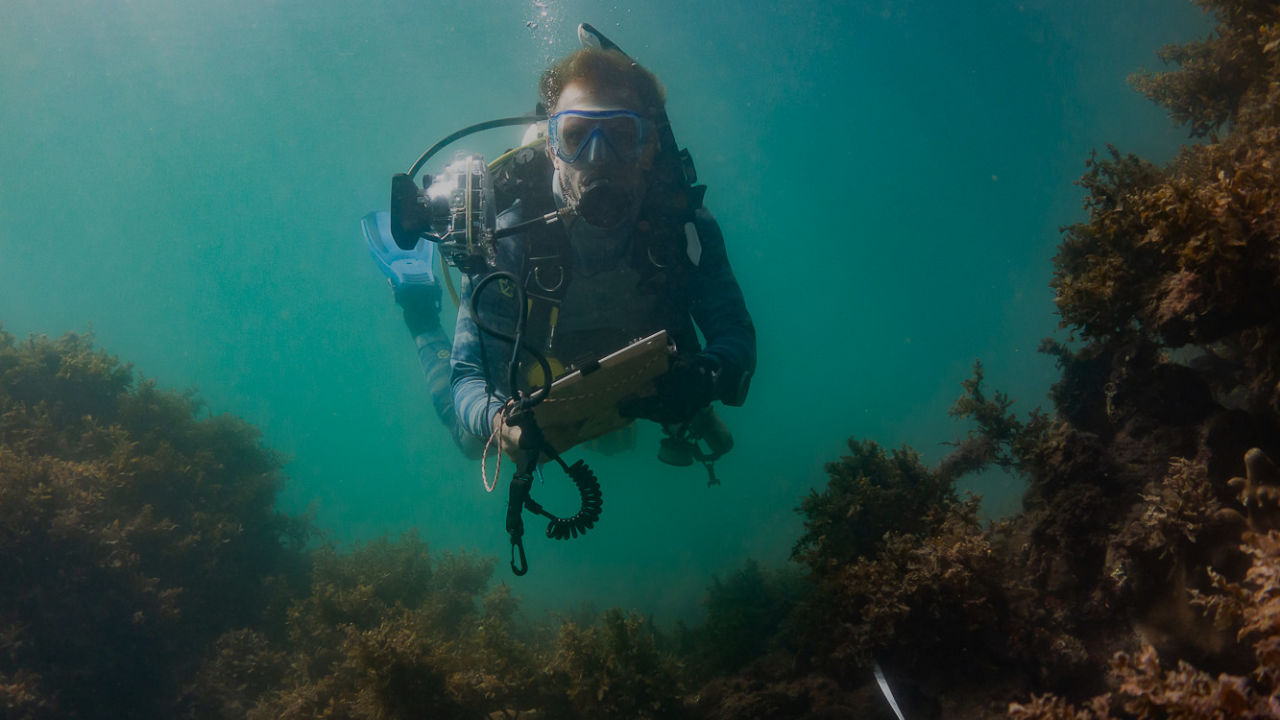
First citizen science coral data use for report cards
Project collaborations with Reef Ecologic and Reef Check Australia continued long-term citizen science coral health monitoring in the Whitsundays and Townsville regions, successfully working with the regional healthy waterway report cards to integrate community data to contribute to formal reporting.
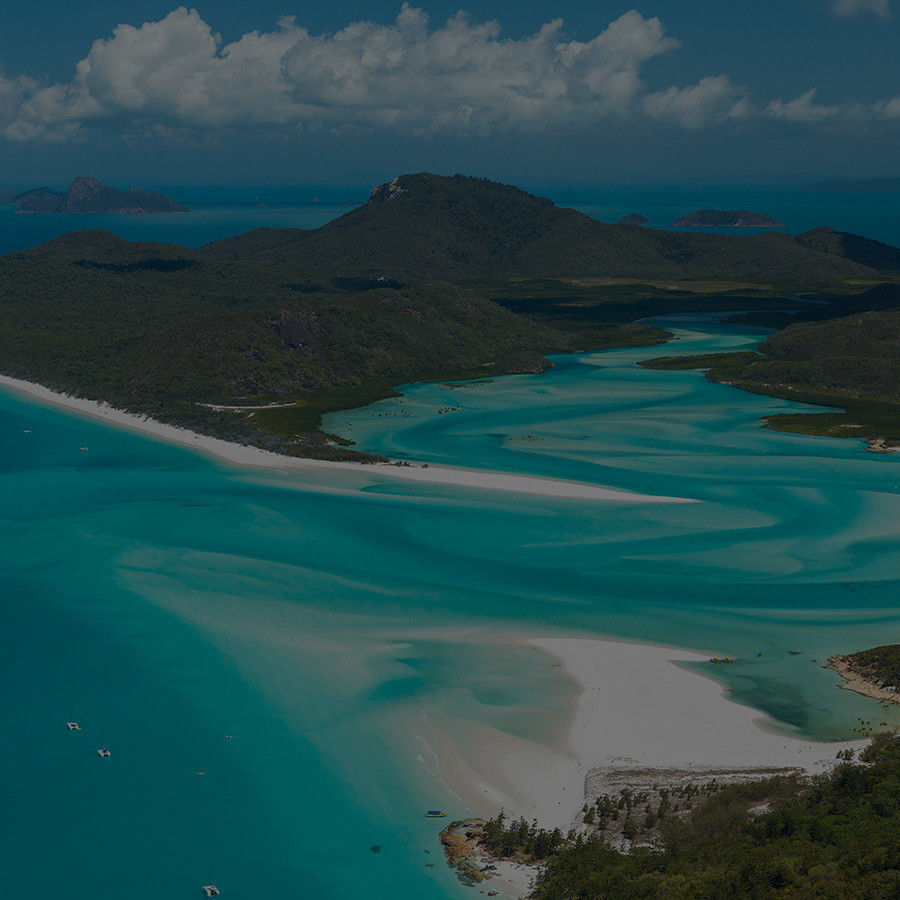
Citizen science filling water quality data gaps
The Water Quality Blueprint led by Reef Catchments brought together research, management, Traditional Owners and trained tourism crew members to collect marine monitoring data to address an identified water quality data gap at valuable fringing reef sites in the Whitsundays and build trust in a collaborative approach.
#Current projects
Current citizen science projects (2022-2024) aim to monitor and build understanding about impacts from climate change and local threats for Reef habitats, wildlife and/or communities, and apply information to enable community-led solutions to build Reef and community resilience.
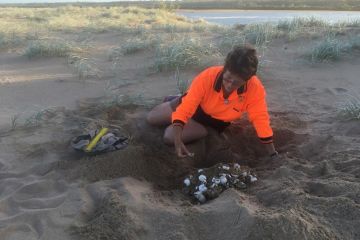
Wreck Rock Turtle Monitoring Project
Turtle Care Volunteers Queensland
Wreck Rock is a primary nesting habitat for endangered loggerhead, green and flatback turtles. This project builds on the 2019-2021 project phase by maintaining the more than 40 year continuous turtle nest protection and monitoring activities, as well as actively strengthening the program through training, learning forums, strengthened partnerships and identification of efficiencies across the Queensland Turtle Care Project network to support conservation outcomes.
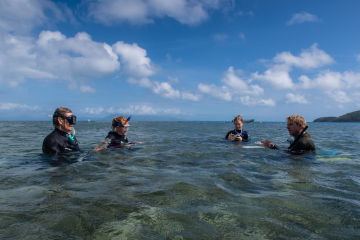
Integrated citizen science in Townsville
Reef Ecologic
Townsville hosts numerous nearshore and offshore reefs. This project builds on a 2019-2021 project phase by bringing together multiple citizen science programs to deliver long-term reef health citizen science monitoring in the region. The data will continue to be used to report on marine health through the Dry Tropics Partnership for Healthy Waters report card. The project builds on a citizen science blueprint strengthen community engagement, and amplify opportunities for youth and Indigenous participation through learning and leadership development.
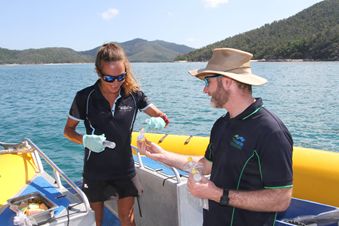
Whitsunday water quality monitoring blueprint for tourism
Reef Catchments
The outer Whitsunday islands are key for the region’s tourism, cultural and social values. This project brings together research, management, Traditional Owners and trained tourism crew to address an identified water quality data gap at Cairn Beach and Tongue Bay by continuing monitoring efforts launched in 2019-2021. The activities further enable tourism’s role in better defining water quality issues in the Whitsundays, strengthening Traditional Owner engagement in protecting sea country and contributing to collective efforts to protect key fringing reef locations.
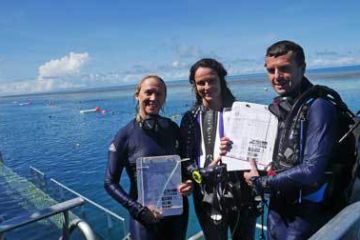
Citizen science reef monitoring for a healthy reef in the Whitsundays
Reef Check Australia
The Whitsundays hosts a network of connected reefs and islands, a highly active tourism industry and a community seeking to strengthen climate change resilience. This project builds on work 2019-2021 through continuing citizen science data contributions for coral health reporting in the Healthy Rivers to Reef Partnership. New data collection approaches will be piloted, including artificial intelligence photo assessment through AIMS’ ReefCloud and trial shallow water drone mapping and monitoring. The program will actively engage community members in appreciating, understanding, and protecting the Whitsundays marine environment.
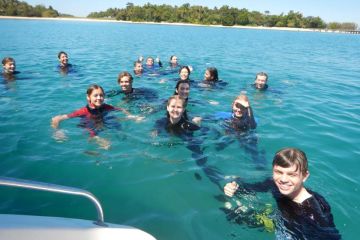
Action through understanding: Surveying GBR coral and seagrass
Science Under Sail
Coral and seagrass are critical for Reef wildlife and ecosystems services, yet are under threat from climate change, catchment run-off and localised human activities. This project builds on the 2019-2021 project to empower high school student citizen scientists to collect information on the health and distribution of seagrass and coral habitats across the GBR. Monitoring locations will focus on areas with limited historic monitoring and apply a refined monitoring methodology developed with Reef managers, scientists, Traditional Owners and community partners. Student participants undertake a local project to grow capacity of our next generation of Reef managers, community leaders and advocates for the GBR.
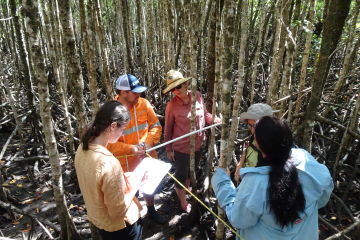
Protecting Wetlands for the Future
EarthWatch Australia
Mangroves and saltmarsh are a key ecosystem that contribute to the health and resilience of the Reef. Ensuring tidal wetlands are in good condition depends on local communities taking local action to both understand and manage threats. This project builds on a 2019-2021 project to continue broad Mangrove Watch monitoring and education with environmental education centres and Traditional Owner partners. Beyond this, the project will build a scalable model that focuses on deeper STEM professional development experience for teachers and direct engagement with schools to establish new wetland monitoring sites that measure blue carbon storage and sequestration, and build a network of empowered educators and communities protecting coastal wetlands.
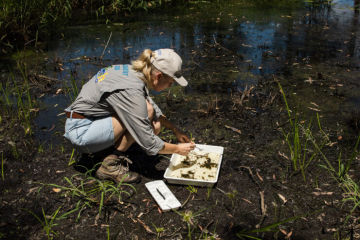
Improving waterway monitoring in the Dry Tropics with eDNA sampling
OzFish Unlimited
This project will pilot using eDNA sampling to improve understanding of fish communities in Townsville waterways of the GBR and build evidence around impacts from the condition of catchment habitats on wildlife in waterways connected to the Reef. This simple, but targeted reconnaissance method will be integrated into the existing CreekWatch citizen science water quality monitoring program. The project will work closely with end data users such as the regional report card partnership to design a pathway to impact for how data can be applied to inform actions to protect waterways.
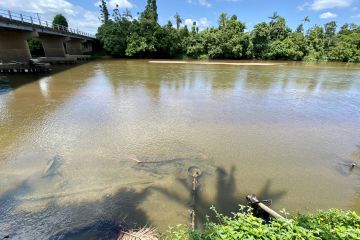
eDNA citizen science health checks in GBR waterways
CSIRO
In addition to climate change, land-based run off is one of the biggest threats to the long-term health and resilience of the Great Barrier Reef. This project fills an identified data gap in understanding the impacts of water quality on fish and crustacean that live in Reef waterways by trialling citizen-science deployed eDNA passive samplers. Project activities will be designed with a range of partners to provide a low-cost, locally-relevant program that greatly expands the spatial and temporal scales of data to detect changes in waterway health and inspire environmental stewardship through participation.
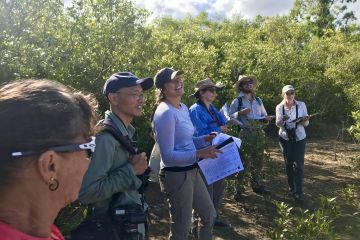
Community MangroveWatch Monitoring to Enhance Tidal Wetlands
Cairns & Far North Environment Centre
Mangrove and saltmarsh ecosystems play a critical role in supporting the health of the Reef, but are also under pressure from human impacts. This project builds on work from 2019-2021 to engage the wider community in monitoring the health of mangroves and saltmarsh habitats. The citizen science data will be used to inform the Wet Tropics Healthy Waterway Report Card and to enable Local Action Plans and build community leadership working with more than a dozen partners to turn monitoring data into on-ground community-led action to protect coastal habitats.
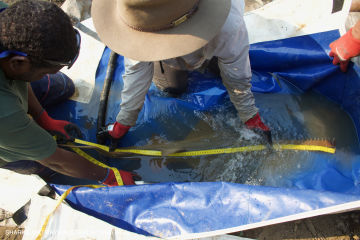
Sharks and Rays Australia
Protecting the vanishing sawfish of the Great Barrier Reef
There are four species of sawfish in the Great Barrier Reef Marine Park. Yet, there is limited data on distribution and range to inform how to best protect these critically endangered or endangered species. This project will strengthen field based and online citizen science data collection in collaboration with Aboriginal Land and Sea Ranger groups and recreational fisher associations to raise awareness on sawfish, increase sawfish sightings by citizen scientists, gather distribution and range data, and identify actions to help enhance protection to empower a diverse range of sawfish stewards.
#Project Stories of Impact
Learn about the impact of previously funded citizen science projects.
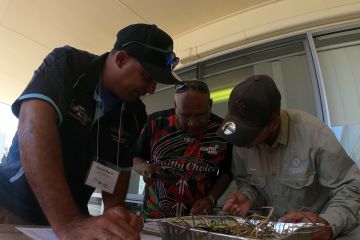
Project News ·
Citizen Science project wrap: Stories of Impact
Community Caring for Sea Country: Seagrass
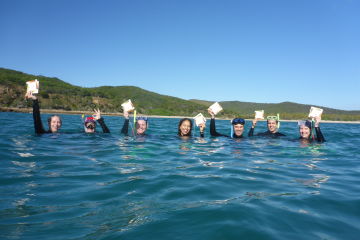
Project News ·
Citizen Science project wrap: Stories of impact
Educating communities to help ACT and PROTECT our GBR
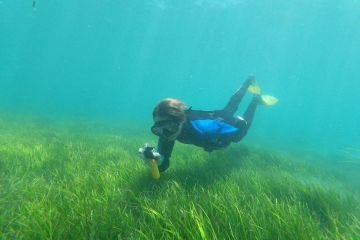
Project News ·
Citizen Science project wrap: Stories of impact
Community seagrass mapping and data visualisation
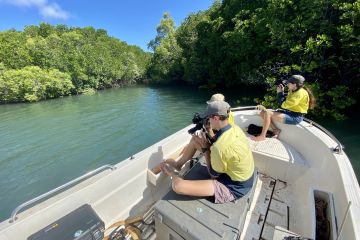
Project News ·
Citizen Science project wrap: Stories of impact
Cairns and Far North Queensland MangroveWatch
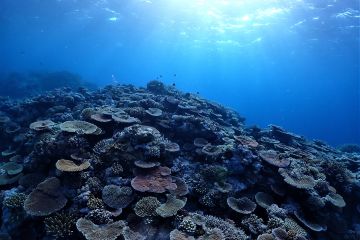
Project News ·
Citizen Science project wrap: Stories of impact
Combining Citizen Science and innovative technologies to enhance reef management
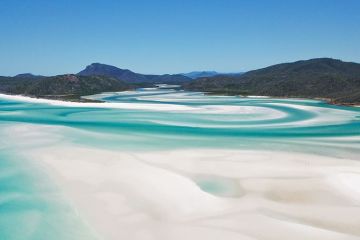
Project News ·
Citizen Science project wrap: Stories of impact
Whitsunday Water Quality Monitoring Blueprint for Tourism Operators
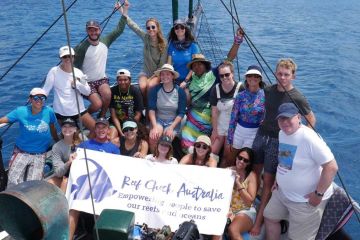
Project News ·
Citizen Science project wrap: Stories of impact
Whitsunday Reef monitoring for long-term health
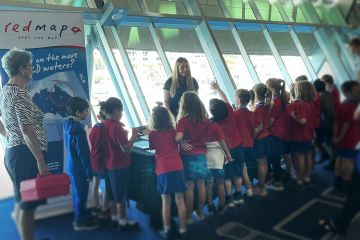
Project News ·
Citizen Science project wrap: Stories of impact
Extending the success of Redmap Australia to Queensland
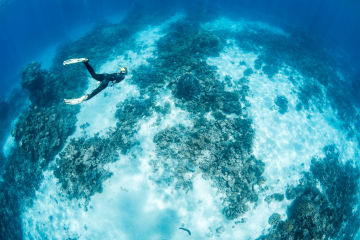
Project News ·
Citizen Science project wrap: Stories of impact
Combining Citizen Science and innovative technologies to enhance reef management
#More about citizen science
The Australian Citizen Science Association definition of citizen science as ‘public participation in and collaboration in scientific research with the aim to increase scientific knowledge’.
The citizen science projects encourage application of the 10 principles of citizen science and application of the FAIR Guiding Principles for scientific data management and stewardship, and CARE Principles for Indigenous Data Governance as relevant.

